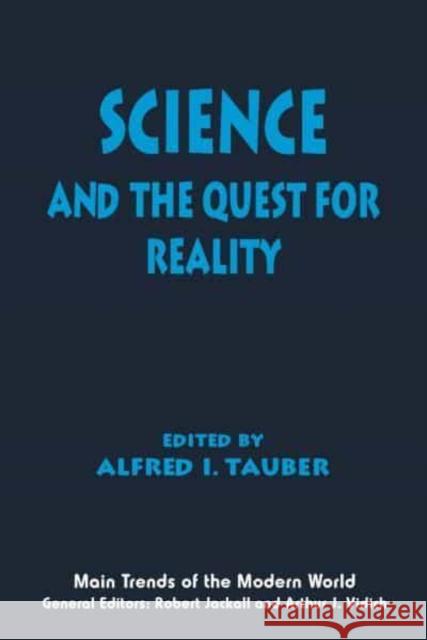Science and the Quest for Reality » książka
Science and the Quest for Reality
ISBN-13: 9780814782200 / Angielski / Miękka / 1997 / 456 str.
Science and the Quest for Reality
ISBN-13: 9780814782200 / Angielski / Miękka / 1997 / 456 str.
(netto: 186,21 VAT: 5%)
Najniższa cena z 30 dni: 166,74
ok. 16-18 dni roboczych.
Darmowa dostawa!
Since Galileo, critics have waged a relentless assault against science, attacking it as dehumanizing, reductionist, relativistic, dominating, and imperialistic. Supporters meanwhile view science as synonymous with modernity and progress. The current debates over the role of science-- described by such headlines as Scientists are Urged to Fight Back Against Politically Correct' Critics in The Chronicle of Higher Education--testify to how deeply divided we remain about the values and responsibilities of science in the modern age. Acknowledging the validity of a deep skepticism about science but eager to preserve its strengths and values, Alfred I. Tauber's anthology seeks to avoid an either/or configuration. Science, Tauber argues, is fundamentally pluralistic and must accept detracting criticism as part of its very code in the hope that, in its defense, the scientific enterprise is strengthened and reaffirmed. Featuring essays by a wide range of interdisciplinary, classical, and contemporary thinkers such as Martin Heidegger, Thomas Kuhn, Hilary Putnam, Evelyn Fox Keller, and Max Weber, the work is divided into five parts: science and its worldview; the problem of scientific realism; the nature of scientific change; the boundaries of science; and science and values.











